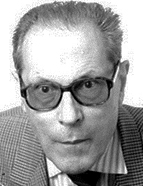

L’histoire et ses problèmes " [New Clio. History and its problems]. Thus, he wrote volumes 27, L’Expansion européenne (1600-1870) [The European Expansion (1600-1870)] (Paris, 1964), and 32, Le XVIe Siècle Européen: Aspects Économiques [The European Sixteenth Century: Economic Aspects] (Paris, 1966). In line with the collection's objectives, and without sacrificing the rigour that characterised his work, Mauro included a 23-page bibliography in his volume about the European expansion. Although not exhaustive, the bibliography was complemented by a chronology and a summary, both of which prioritised economic aspects. The book—in the words of his colleague Pierre Chaunu, a quantitative historian who was equally attentive to theoretical formulations—revealed "la ligne vigoureuse d’une pensée personnelle" (Chaunu, "Le rythme trentenaire de l’expansion européenne" [The thirty-year pace of European expansion], 1966, p. 886), was innovative in its presentation of the cyclical rhythms of European expansion. Mauro’s analysis established itself as a solid contribution to the field of economic history. In the volume on European economy, Mauro used concepts from economic theory and once again drafted a rigorous synthesis, breaking new ground for his valuable contribution to the Hispanic world and because he had integrated the overseas territories into the economy of 16th century Europe. Also, during this period, Mauro began publishing "programmatic" texts—which would continue over the following decades—in which he debated the paths French historiography should take to develop studies on the Americas, especially Latin America (Mauro, "Comment développer les recherches françaises…" [How to Develop French Research], 1967; Vayssière, "Frédéric MAURO," 2002, pp. 299-301). In 1967, Mauro was appointed the first French chair of Latin American history at the Faculty of Letters and Human Sciences in Nanterre. From that point onwards, he divided his time in France between this institution and the Institut des Hautes Études de l'Amérique Latine [Institute of Latin American Studies], founded in 1954 by geographer Pierre Monbeig, where he led a research seminar. Mauro's ties to Portugal remained strong, and in 1968 he was elected a corresponding member of the Academia Portuguesa da História [Portuguese Academy of History]. Two years later, at the suggestion of Joaquim Veríssimo Serrão, Mauro compiled a selection of his post-doctoral texts into the collection Études Économiques sur l’Expansion Portugaise (1500-1900) [Economic Studies on the Portuguese Expansion] (1970). Despite its title, the collection also examined social groups, such as merchants, and explored the interplay between economy, culture, and social institutions in Brazil. It included a section dedicated to "Comparisons and Perspectives", thus emphasising the structuralist and comparative matrix of the Annales school. In subsequent decades, Mauro continued to develop his work as a scientific supervisor.
This work is financed by national funds through FCT - Foundation for Science and Technology, I.P, in the scope of the projects UIDB/04311/2020 and UIDP/04311/2020.
